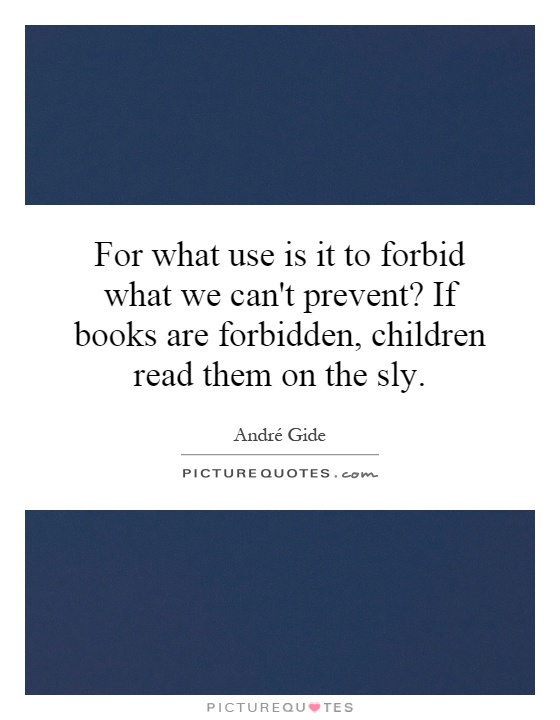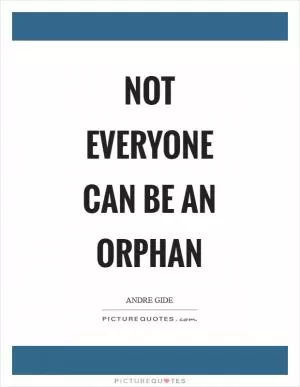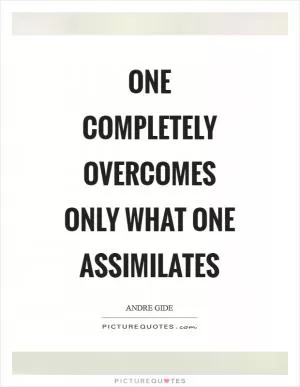For what use is it to forbid what we can't prevent? If books are forbidden, children read them on the sly

For what use is it to forbid what we can't prevent? If books are forbidden, children read them on the sly
The quote "For what use is it to forbid what we can't prevent? If books are forbidden, children read them on the sly" is a powerful statement that reflects the idea that censorship and prohibition often have the opposite effect of what is intended. This sentiment is particularly relevant in the context of the French writer André Gide, who was known for his controversial and provocative works that challenged societal norms and conventions.Gide was a prolific writer who explored themes of sexuality, morality, and religion in his novels and essays. His most famous work, "The Immoralist," caused a scandal when it was first published in 1902 due to its frank depiction of homosexuality and its questioning of traditional values. Despite the controversy surrounding his work, Gide continued to push boundaries and challenge the status quo throughout his career.












 Friendship Quotes
Friendship Quotes Love Quotes
Love Quotes Life Quotes
Life Quotes Funny Quotes
Funny Quotes Motivational Quotes
Motivational Quotes Inspirational Quotes
Inspirational Quotes